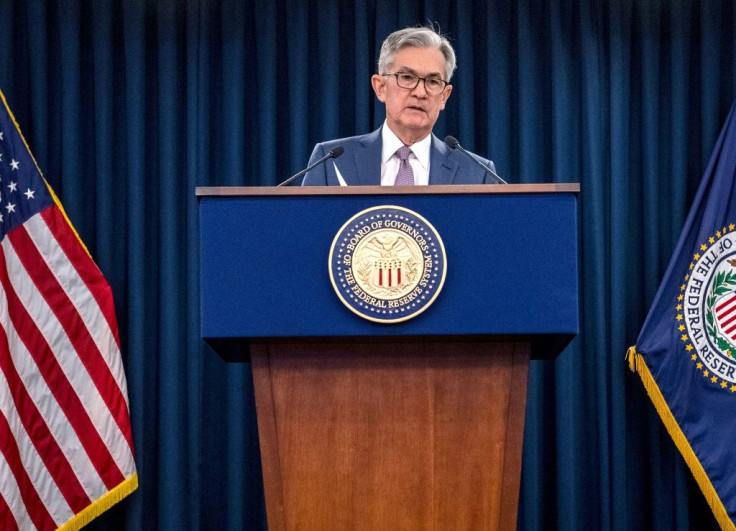US Won't Reach 'Maximum Employment' This Year: Powell
The US labor market faces a lengthy recovery and the economy will not see maximum employment this year, Federal Reserve Chair Jerome Powell said Thursday.
While he expressed hope about the restoration of jobs lost during the pandemic, Powell noted that millions of workers have left the labor force.
"I think it's not at all likely it would reach maximum employment this year. I think it's going to take some time to get there," Powell said during an event hosted by The Wall Street Journal.
While there is "good reason to expect job creation to pick up in coming months," Powell said "we're still 10 million jobs short of where we were" before the pandemic.
A year ago, before Covid-19 forced business shutdowns and hemorrhaging of jobs, the US unemployment rate was at a 50-year low of 3.5 percent. With the pandemic shutdowns, it soared at one point to more than four times that rate.
And though it has recovered to 6.3 percent, Powell has said the true rate is closer to 10 percent including those people who have simply stopped looking for work.
"It's a lot of ground we have to cover," he said.
Jobless claims data released Thursday showed new applications rose again last week and remain above 700,000, higher than any point during the global financial crisis of 2007-2008.
And many unemployed workers will lose their benefits in 10 days unless Congress approves President Joe Biden's $1.9 trillion rescue package, which extends those benefits and provides $1,400 direct payments to all adults.
White House spokeswoman Jen Psaki said Thursday the unemployment claims number shows that "hundreds of thousands of Americans are continuing to struggle in this economy."
"We can't get numb to what this represents," she added, saying "this also underscores the need for Congress to move quickly to pass the American Rescue Plan."
The House approved the package last week, and it now faces debate in the Senate.
Biden indicated he was willing to compromise on some elements, saying "yes" he was comfortable with limiting the direct payments at the heart of the relief bill in order to satisfy more conservative senators.

In another effort to assuage financial markets worried that rising prices will lead to increased borrowing costs, the US central bank chief again stressed that policymakers are in no rush to raise its benchmark lending rate.
As the economy recovers, Powell said "you could see prices moving up" but those increases are likely to be transient.
The Fed, however, will not act until the economy has returned to maximum employment and inflation is both above the bank's 2.0 percent goal and on track to remain there "for some time."
"We're not intending to raise interest rates until we see those conditions fulfilled," Powell said.
Markets were not impressed, and all three major stock indices closed in the red, with the benchmark Dow Jones industrial average shedding 1.1 percent.
Equities have been depressed in recent weeks as signs of economic recovery amid accelerating coronavirus vaccine rollouts have focused attention on what will happen to prices and what companies and sectors are most vulnerable to rising borrowing costs.
Powell said Fed officials "have the tools to assure that longer-run inflation expectations are well anchored at 2 percent."
Apparently markets wanted more, and the yield on 10-year US Treasury notes spiked to 1.55 percent, the highest this week and near the peak of the past year -- a red flag about inflation pressures -- igniting a stock selloff.
But Karl Haeling of LBBW said markets were hoping for "something stronger" including some operation to help contain the bond sell-off.
"We don't know right now if it's just a knee- jerk reaction of disappointment or if this is really the start of a new phase higher in bond yields," he told AFP.
hs/dw
© Copyright AFP {{Year}}. All rights reserved.





















